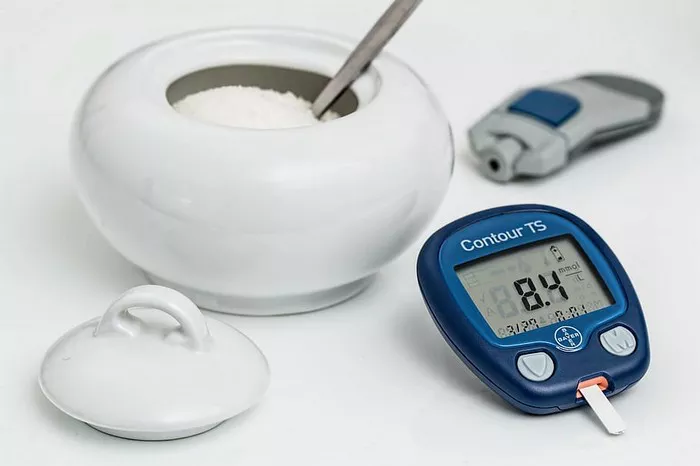Maintaining stable blood sugar levels is crucial for overall health, particularly for individuals with diabetes or those at risk of developing it. When blood sugar levels spike, it can lead to various health complications, including cardiovascular disease, nerve damage, and kidney problems. While medications and lifestyle changes play significant roles in managing blood sugar levels, diet also plays a crucial role. Knowing what to eat to lower blood sugar immediately can provide immediate relief and long-term benefits. This article explores foods that can help lower blood sugar levels quickly and effectively.
Understanding Blood Sugar Levels
Before delving into foods that can lower blood sugar, it’s essential to understand what blood sugar levels are and how they affect the body. Blood sugar, or glucose, is the primary source of energy for cells in the body. When you eat carbohydrates, your digestive system breaks them down into glucose, which enters the bloodstream.
The body’s pancreas then releases insulin, a hormone that helps transport glucose from the bloodstream into cells to be used for energy. However, in individuals with diabetes or insulin resistance, this process doesn’t function correctly, leading to elevated blood sugar levels.
High blood sugar levels, known as hyperglycemia, can cause symptoms such as increased thirst, frequent urination, fatigue, and blurred vision. Long-term hyperglycemia can damage blood vessels and organs, increasing the risk of complications like heart disease, stroke, and kidney failure.
Foods That Lower Blood Sugar Immediately
While maintaining a balanced diet is essential for managing blood sugar levels, certain foods can help lower them quickly, providing immediate relief. Incorporating these foods into your meals and snacks can contribute to better blood sugar control. Here are some options:
1. Non-Starchy Vegetables:
Non-starchy vegetables are low in carbohydrates and calories but high in fiber, vitamins, and minerals. Examples include spinach, broccoli, cauliflower, peppers, and kale. These vegetables have a minimal impact on blood sugar levels due to their high fiber content, which slows down glucose absorption.
2. Leafy Greens:
Leafy greens like spinach, kale, and Swiss chard are particularly beneficial for lowering blood sugar. They are low in carbohydrates and calories while being rich in nutrients and antioxidants. Incorporating leafy greens into meals can help stabilize blood sugar levels and promote overall health.
3. Berries:
Berries such as strawberries, blueberries, and raspberries are low-glycemic fruits rich in fiber, antioxidants, and vitamins. The fiber content in berries slows down the digestion and absorption of carbohydrates, preventing spikes in blood sugar levels. Berries can be enjoyed fresh or added to yogurt, oatmeal, or smoothies for a nutritious and blood sugar-friendly snack.
4. Nuts and Seeds:
Nuts and seeds like almonds, walnuts, chia seeds, and flaxseeds are excellent choices for managing blood sugar levels. They are rich in healthy fats, protein, and fiber, which help slow down the absorption of carbohydrates and stabilize blood sugar levels. Including a handful of nuts or seeds as a snack can promote satiety and prevent blood sugar spikes.
5. Lean Protein Sources:
Foods high in protein, such as chicken, turkey, fish, tofu, and legumes, can help lower blood sugar levels when consumed as part of a balanced meal. Protein slows down digestion and helps regulate blood sugar by reducing the impact of carbohydrates on glucose levels. Incorporating lean protein sources into meals can promote satiety and improve blood sugar control.
6. Greek Yogurt:
Greek yogurt is a nutrient-rich dairy product that can help lower blood sugar levels due to its high protein content. Protein-rich foods like Greek yogurt help stabilize blood sugar levels by slowing down the digestion and absorption of carbohydrates. Choose plain, unsweetened Greek yogurt to avoid added sugars, and consider adding berries or nuts for extra flavor and nutrients.
7. Apple Cider Vinegar:
Apple cider vinegar has been studied for its potential to improve insulin sensitivity and lower blood sugar levels. Consuming apple cider vinegar before meals may help reduce postprandial blood sugar spikes. Dilute apple cider vinegar in water and drink it before meals, or use it as a salad dressing to reap its potential benefits.
8. Cinnamon:
Cinnamon is a spice that has been shown to help improve insulin sensitivity and lower blood sugar levels. Adding cinnamon to foods and beverages can enhance their flavor while providing potential blood sugar-lowering effects. Sprinkle cinnamon on oatmeal, yogurt, or smoothies, or incorporate it into savory dishes for a flavorful twist.
9. Legumes:
Legumes such as beans, lentils, and chickpeas are rich in fiber, protein, and complex carbohydrates, making them an excellent choice for managing blood sugar levels. The fiber and protein content in legumes help slow down digestion and stabilize blood sugar levels. Include legumes in soups, salads, and stews for a nutritious and blood sugar-friendly meal.
10. Avocado:
Avocado is a nutrient-dense fruit that is rich in healthy fats, fiber, and vitamins. The monounsaturated fats in avocado help improve insulin sensitivity and regulate blood sugar levels. Incorporating avocado into meals can promote satiety and prevent blood sugar spikes. Add avocado slices to salads, sandwiches, or omelets for a delicious and nutritious boost.
Conclusion
Maintaining stable blood sugar levels is essential for overall health and well-being, especially for individuals with diabetes or those at risk of developing it. While medications and lifestyle changes are vital components of blood sugar management, diet also plays a significant role. Incorporating foods like non-starchy vegetables, leafy greens, berries, nuts and seeds, lean protein sources, Greek yogurt, apple cider vinegar, cinnamon, legumes, and avocado into your diet can help lower blood sugar levels quickly and effectively.
By making informed food choices and adopting a balanced diet rich in nutrient-dense foods, you can support blood sugar control and reduce the risk of complications associated with high blood sugar levels. Additionally, consulting with a healthcare provider or registered dietitian can provide personalized guidance and support in managing blood sugar levels effectively through diet and lifestyle modifications. Remember to monitor your blood sugar levels regularly and adjust your diet as needed to achieve optimal blood sugar control and overall health.

























